This past week, as part of her work with McMaster University in Canada, Bournemouth University’s (BU) Centre for Midwifery & Women’s Health (CMWH) postgraduate PhD student Joanne Rack published a paper in BMJ Open. This Open Access paper explores the strengths and weaknesses of midwifery research in Canada [1]. Joanne is currently doing a Clinical Doctorate in the specialising in personalised care for women of advanced maternal age. This PhD study is matched-funded by University Hospitals Dorset NHS Foundation Trust and Bournemouth University [BU].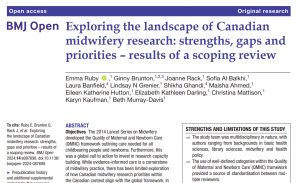
 Her PhD is supervised and supported by Professors Vanora Hundley and Edwin van Teijlingen in CMWH, Prof. Ann Luce, deputy dean in BU’s Department of Communication & Journalism as well as Dr. Latha Vinayakarao in Poole Maternity Hospital.
Her PhD is supervised and supported by Professors Vanora Hundley and Edwin van Teijlingen in CMWH, Prof. Ann Luce, deputy dean in BU’s Department of Communication & Journalism as well as Dr. Latha Vinayakarao in Poole Maternity Hospital.
The second midwifery paper ‘Importance of Expanding Midwifery-led Units and Midwifery Care in Reducing Maternal Deaths in Nepal‘, which is also Open Access, has a different international focus, this time on Nepal [2]. The paper is co-authored by Dr. Preeti Mahato and Prof. Edwin van Teijlingen. Dr. Preeti Mahato, formerly in BU’s Faculty of Health & Social Sciences, is currently based at Royal Holloway, University of London.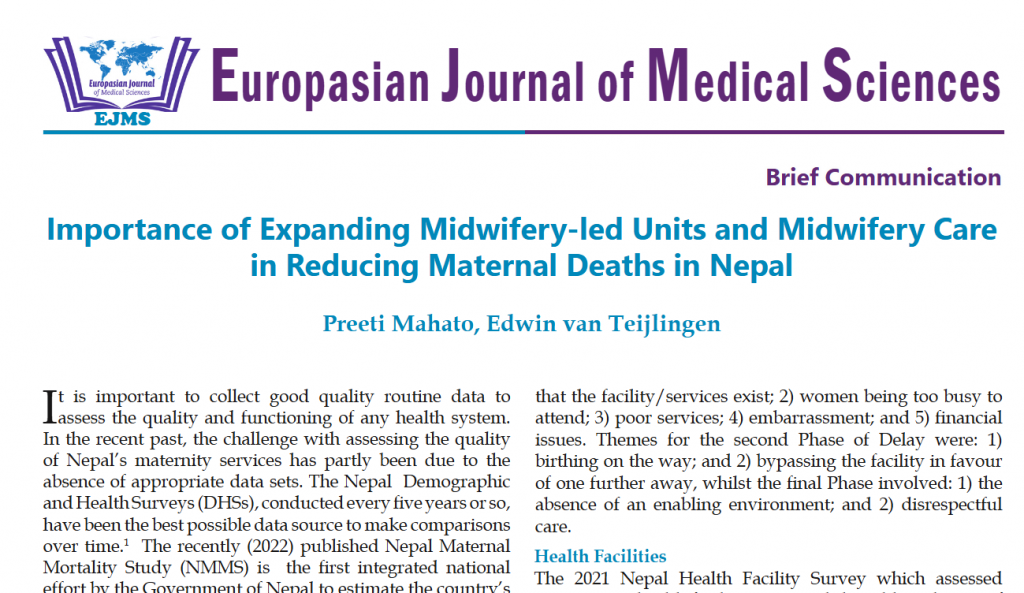
References:
- Ruby, E., Brunton, G., Rack, J., et al. (2024). Exploring the landscape of Canadian midwifery research: strengths, gaps and priorities – results of a scoping review. BMJ Open 14:e087698. doi:10.1136/bmjopen-2024-087698
- Mahato, P., van Teijlingen, E. (2024). Importance of Expanding Midwifery-led Units and Midwifery Care in Reducing Maternal Deaths in Nepal. Europasian Journal of Medical Sciences 6(1). https://doi.org/10.46405/ejms.v6i1.537
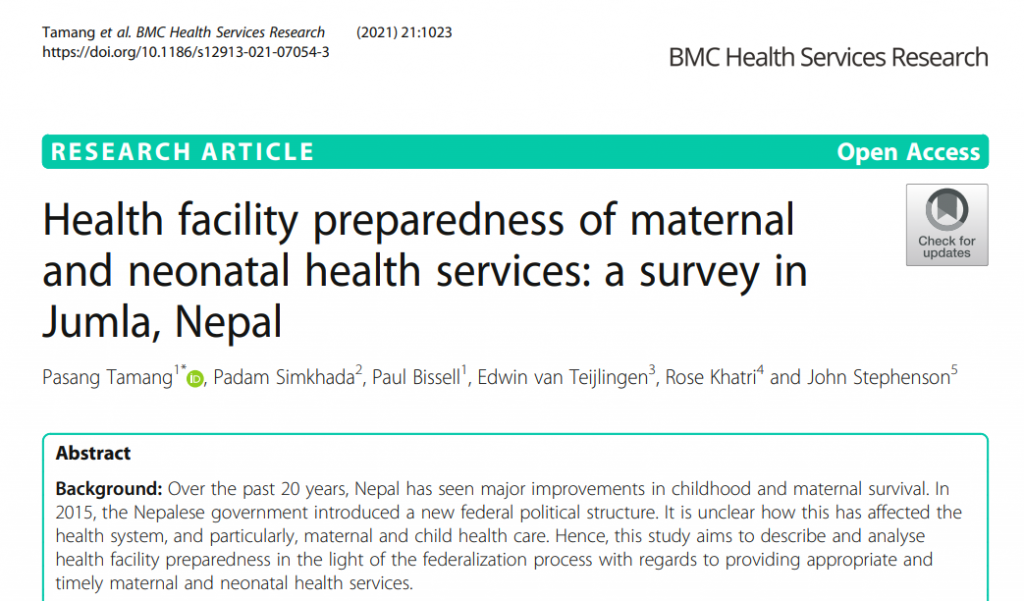


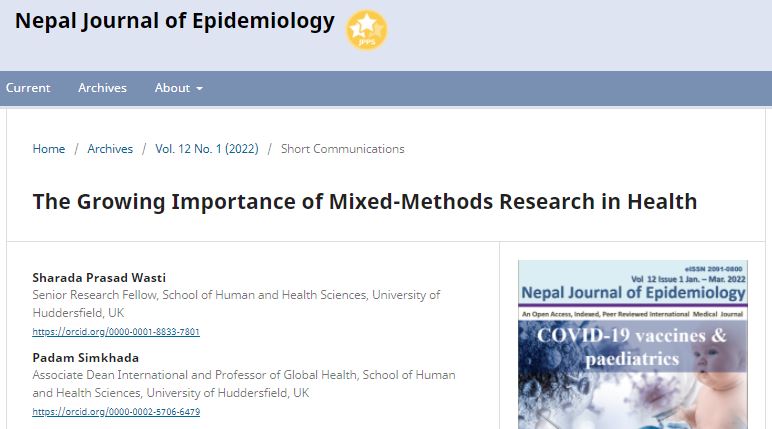
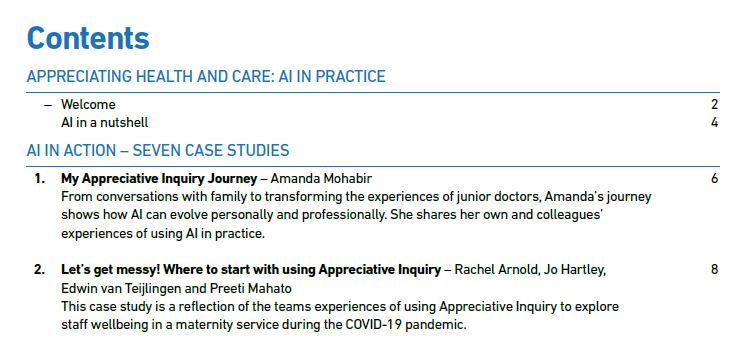

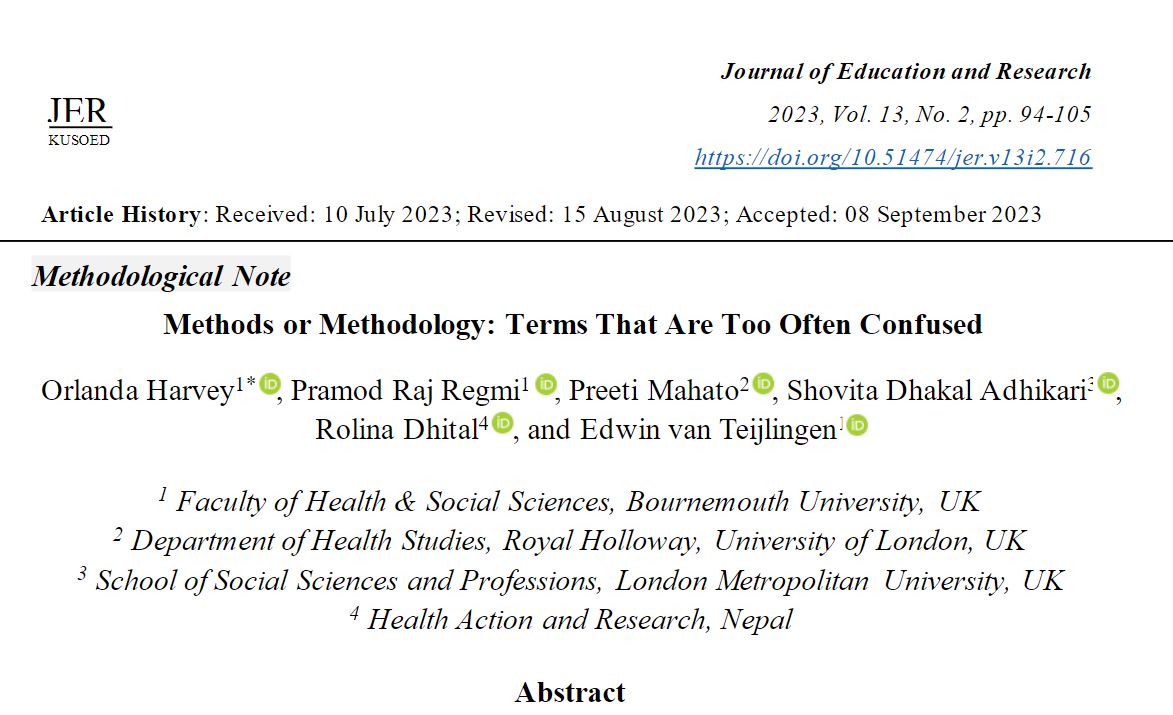
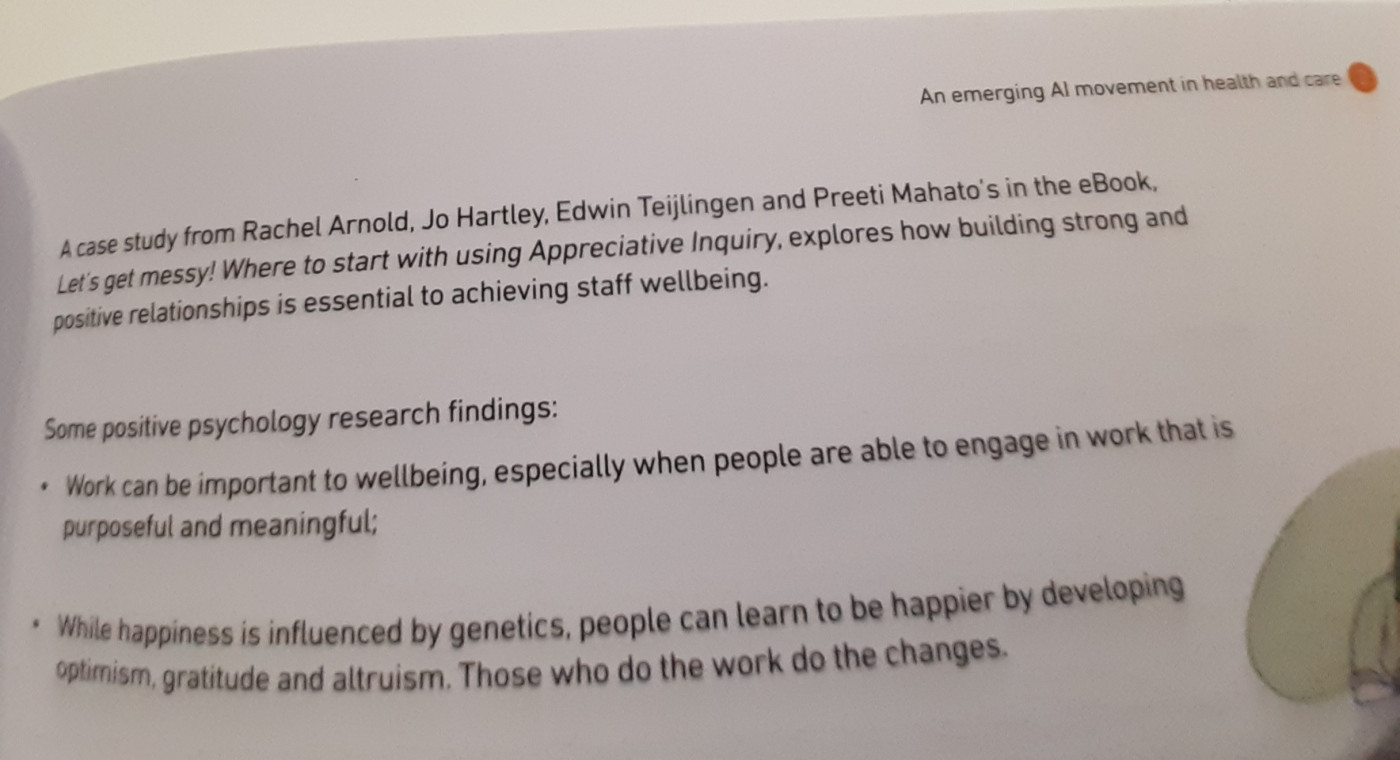
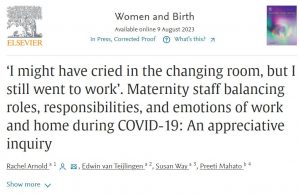
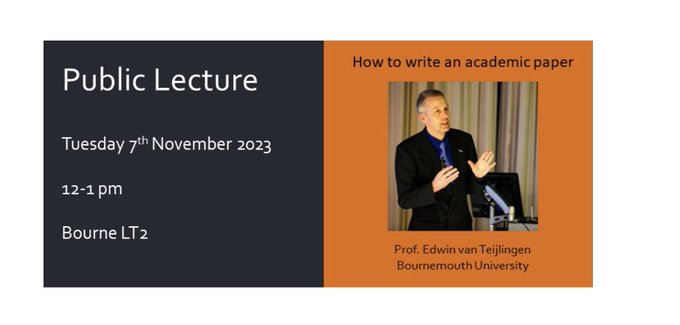 Professor Edwin van Teijlingen in the Centre for Midwifery & Women’s Health (CMWH) has been invited to speak at Royal Holloway, University of London, about writing an academic paper. His public lecture will be coming Tuesday lunch time in the appropriately named ‘Bourne Lecture Theatre’ at Royal Holloway. Prof. van Teijlingen, together with several Bournemouth University (BU) colleagues, has published a text book [1], several book chapters [2-18] and a large number of papers [19-38] about a wide-range of aspects of academic writing and publishing. One of former BU academics, who co-authored a book chapter [10], and two papers [21, 25], is Dr. Preeti Mahato. She is Lecturer in Global Health at Royal Holloway as well as Visiting Faculty in BU’s Faculty of Health & Social Sciences.
Professor Edwin van Teijlingen in the Centre for Midwifery & Women’s Health (CMWH) has been invited to speak at Royal Holloway, University of London, about writing an academic paper. His public lecture will be coming Tuesday lunch time in the appropriately named ‘Bourne Lecture Theatre’ at Royal Holloway. Prof. van Teijlingen, together with several Bournemouth University (BU) colleagues, has published a text book [1], several book chapters [2-18] and a large number of papers [19-38] about a wide-range of aspects of academic writing and publishing. One of former BU academics, who co-authored a book chapter [10], and two papers [21, 25], is Dr. Preeti Mahato. She is Lecturer in Global Health at Royal Holloway as well as Visiting Faculty in BU’s Faculty of Health & Social Sciences.
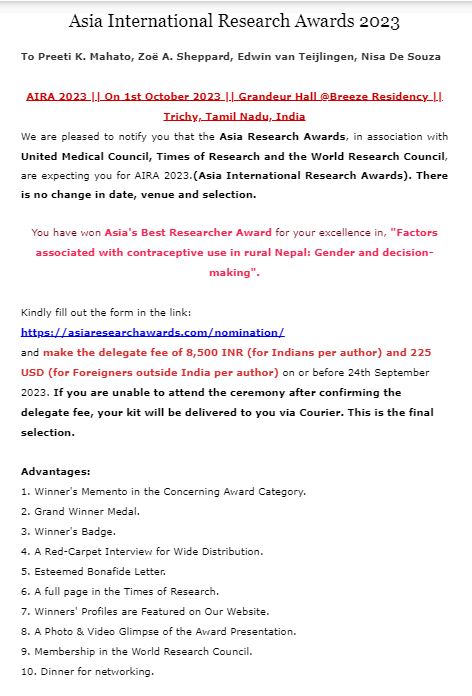

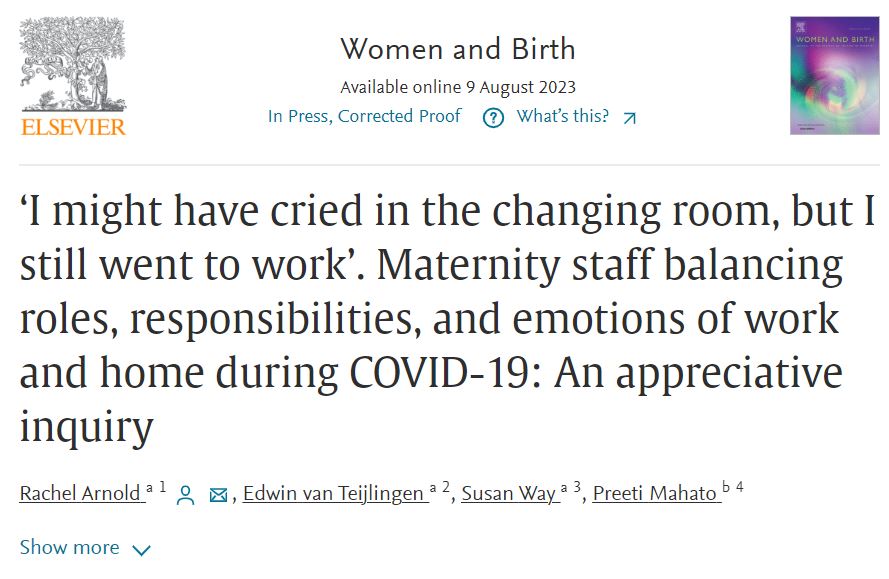


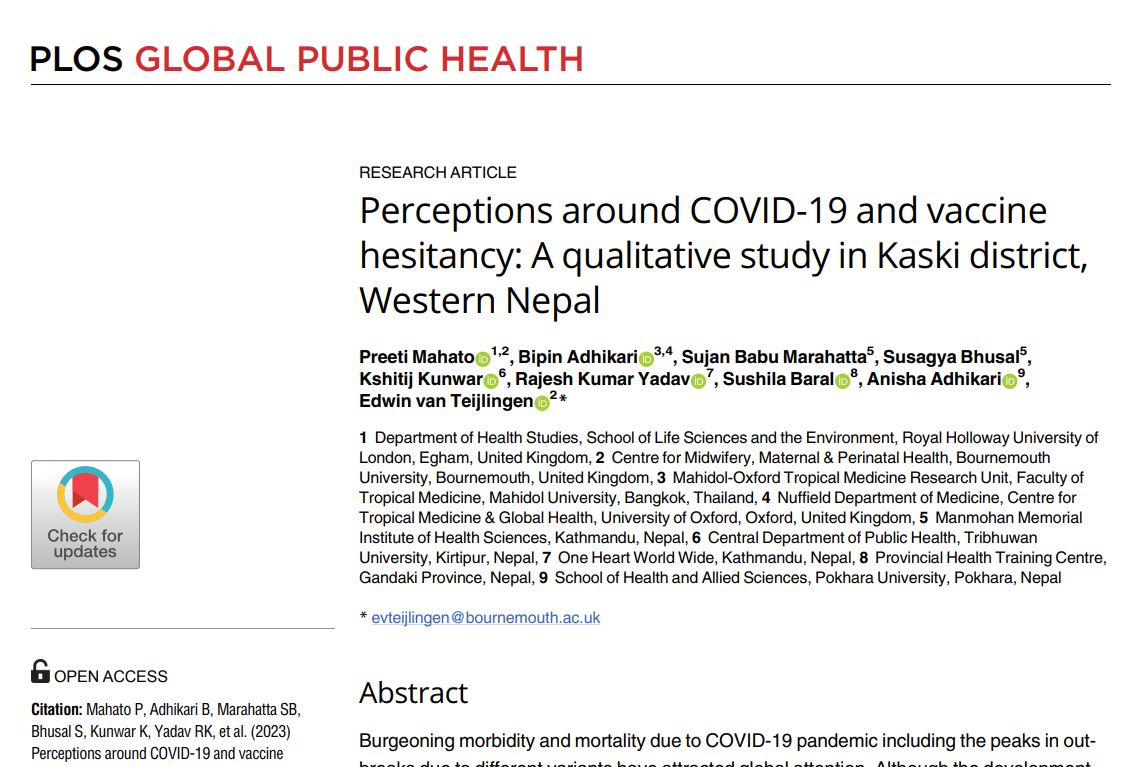
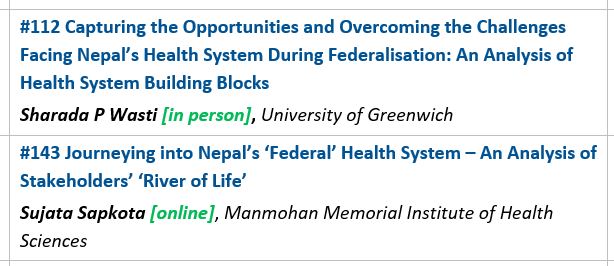
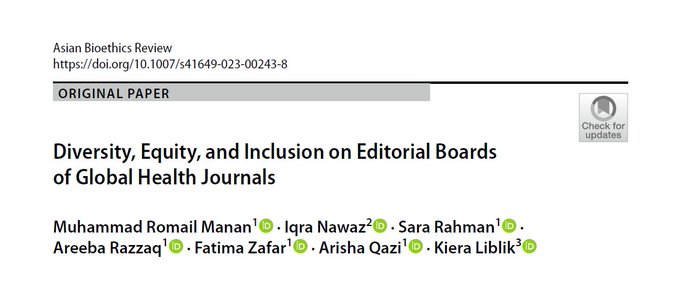
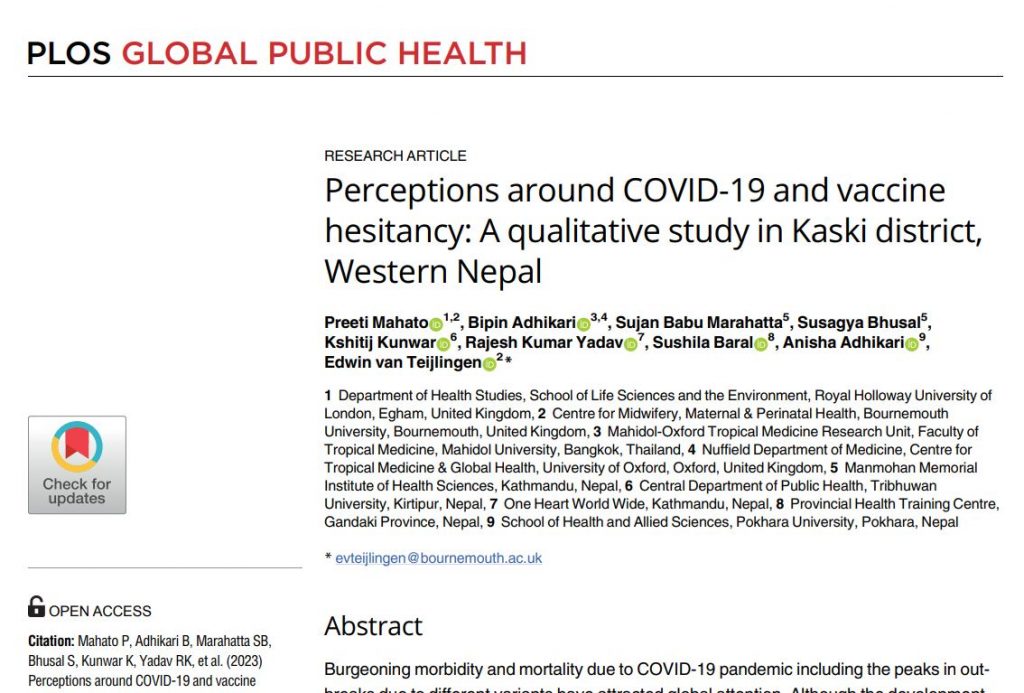
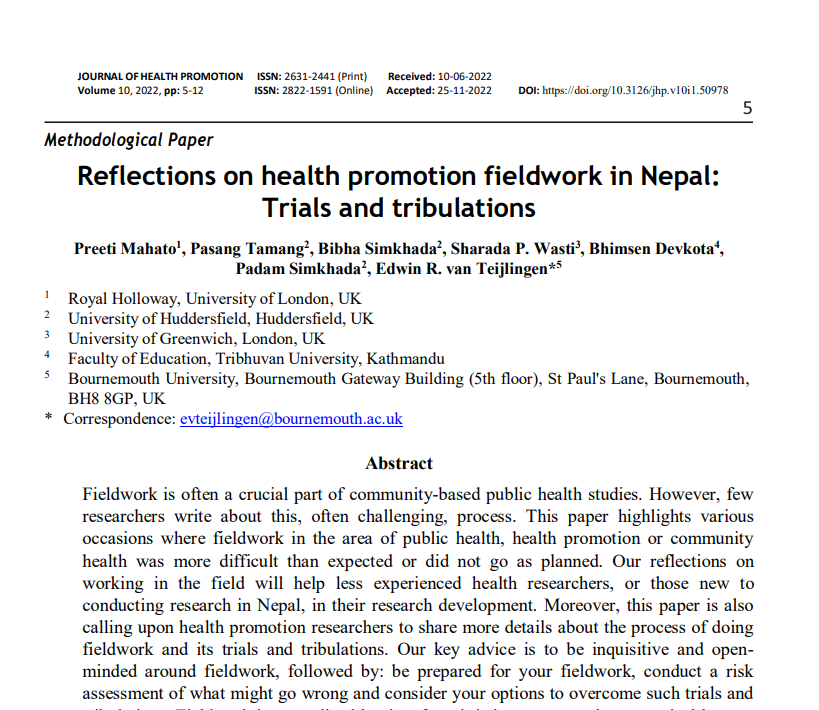
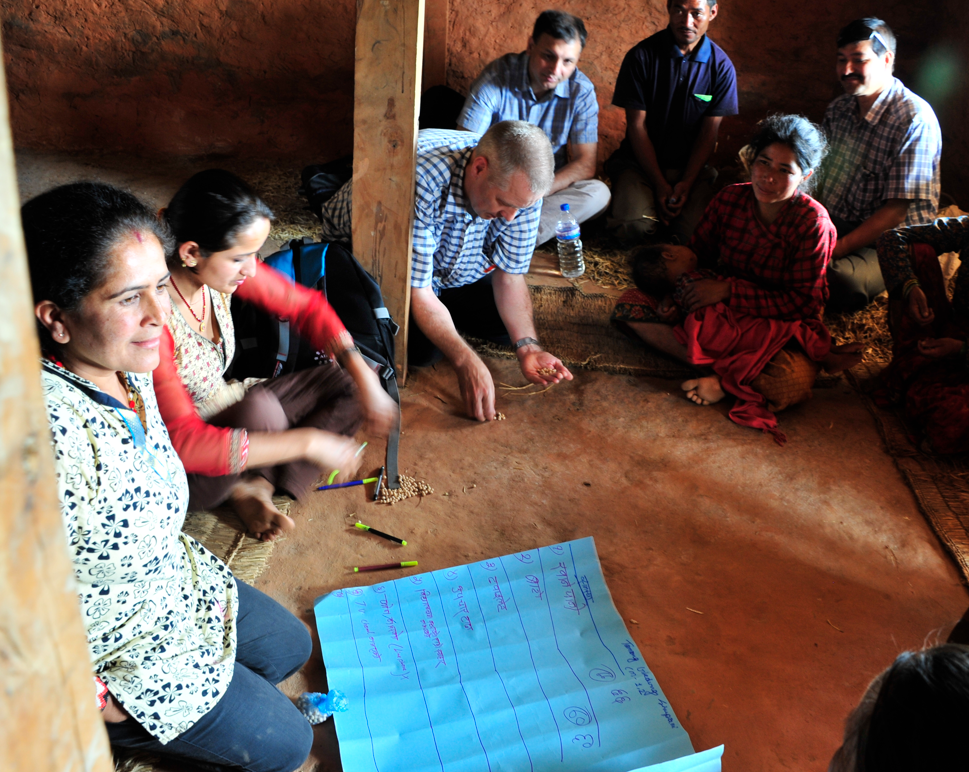
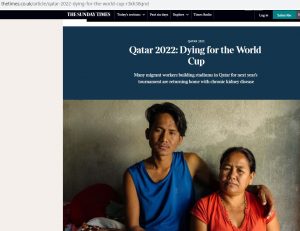

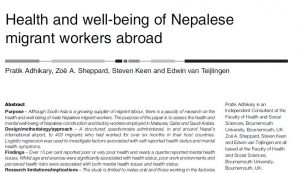
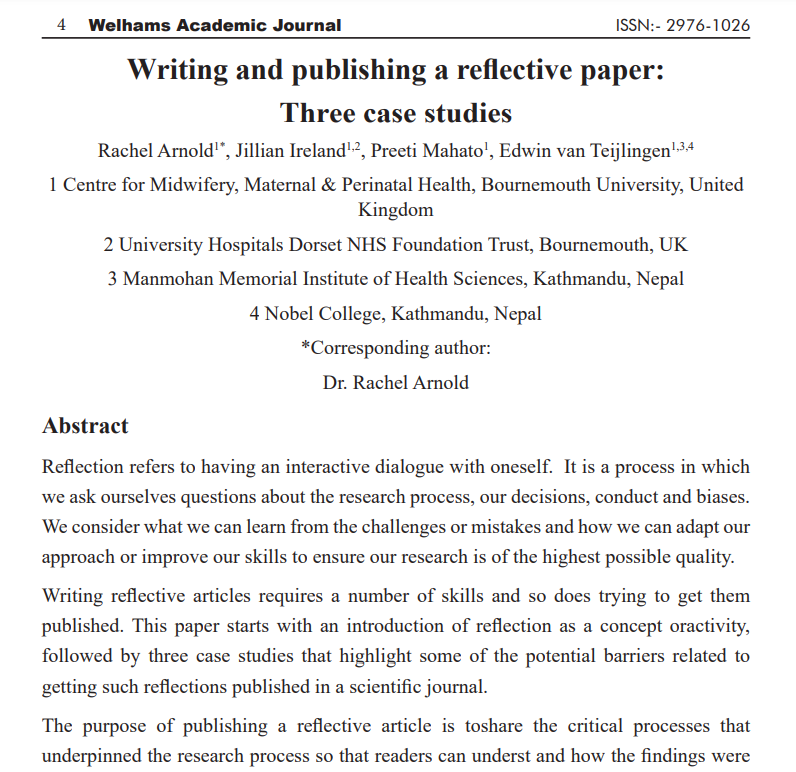



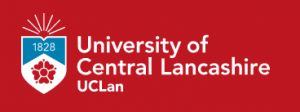
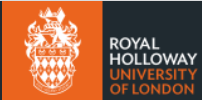
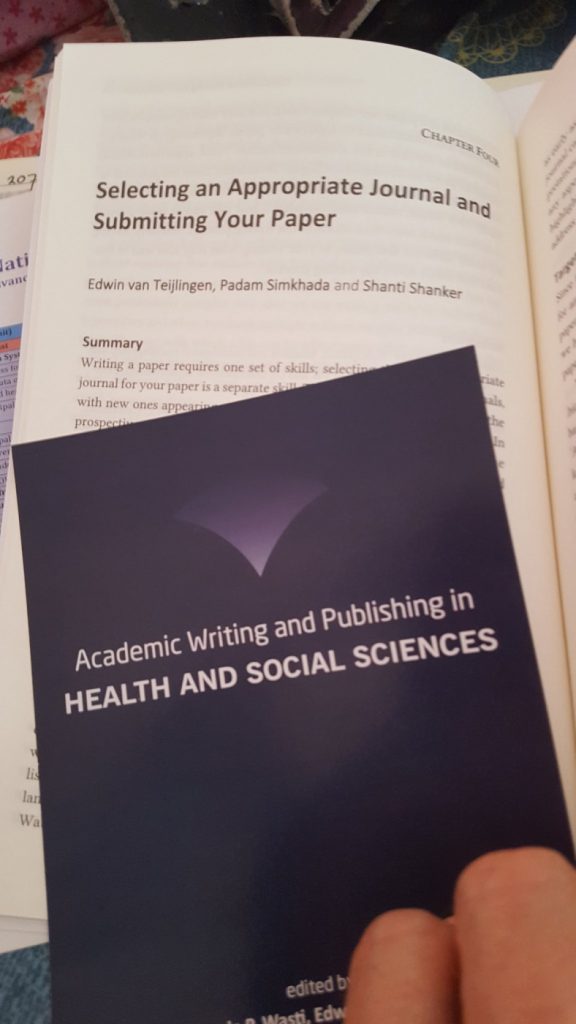
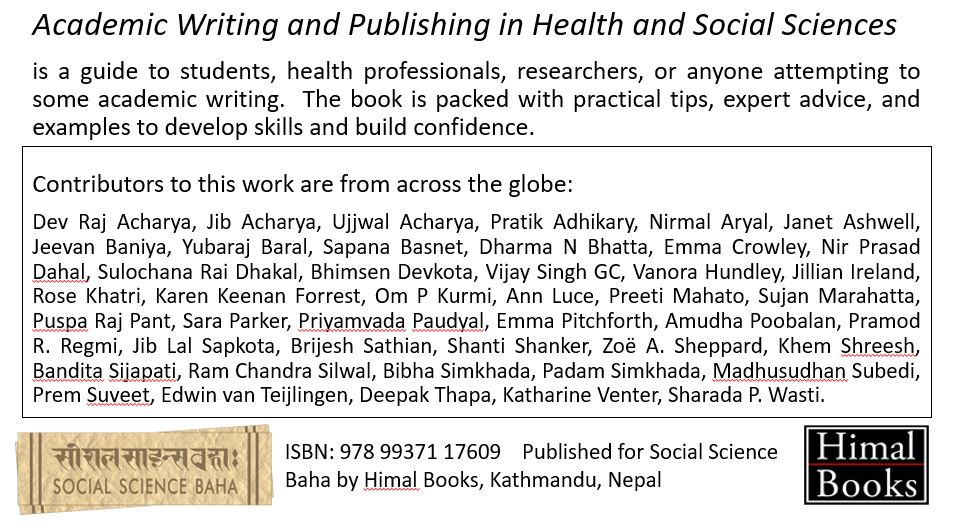
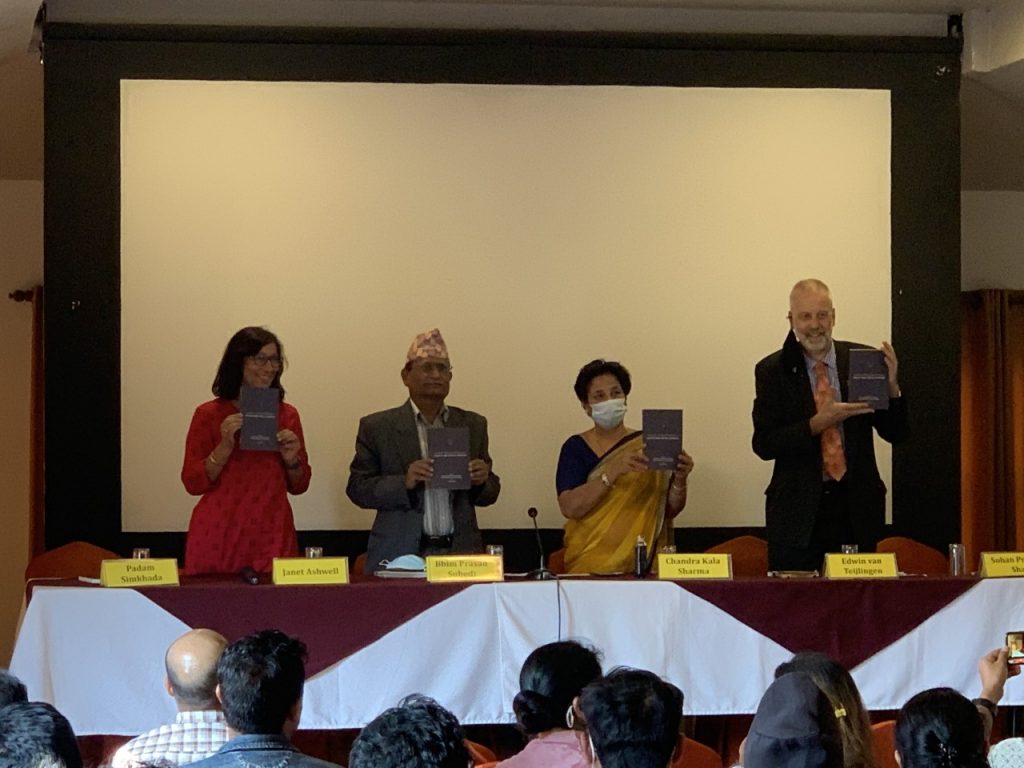
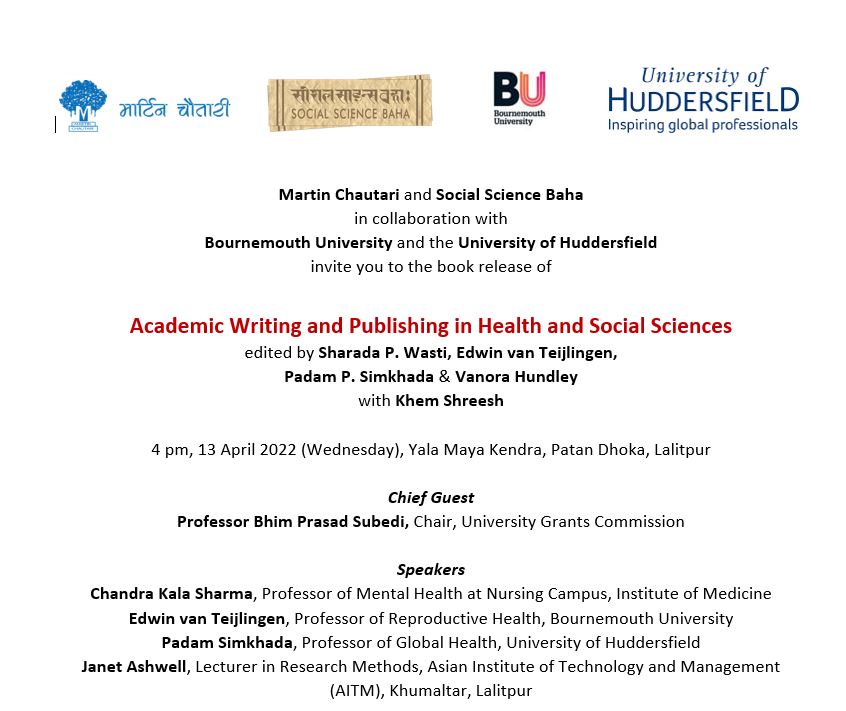
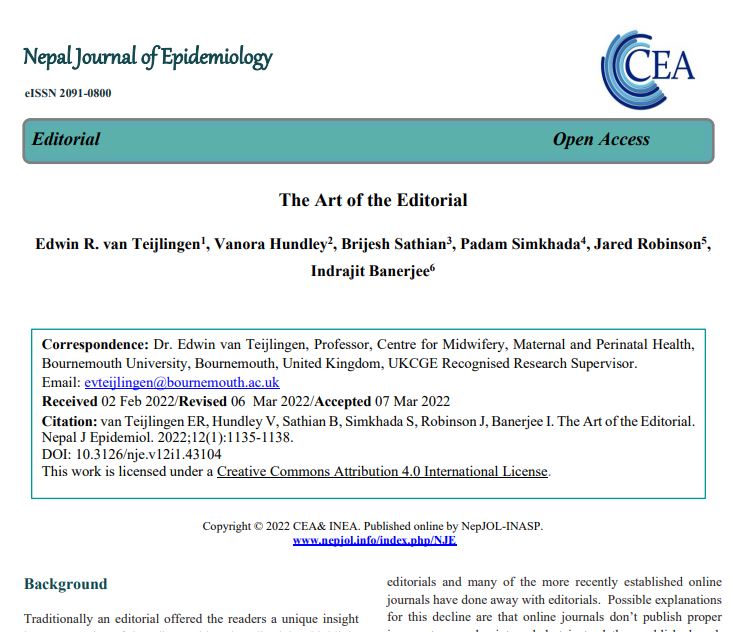











 BU Leads AI-Driven Work Package in EU Horizon SUSHEAS Project
BU Leads AI-Driven Work Package in EU Horizon SUSHEAS Project Evidence Synthesis Centre open at Kathmandu University
Evidence Synthesis Centre open at Kathmandu University Expand Your Impact: Collaboration and Networking Workshops for Researchers
Expand Your Impact: Collaboration and Networking Workshops for Researchers Visiting Prof. Sujan Marahatta presenting at BU
Visiting Prof. Sujan Marahatta presenting at BU 3C Event: Research Culture, Community & Can you Guess Who? Thursday 26 March 1-2pm
3C Event: Research Culture, Community & Can you Guess Who? Thursday 26 March 1-2pm ECR Funding Open Call: Research Culture & Community Grant – Apply now
ECR Funding Open Call: Research Culture & Community Grant – Apply now ECR Funding Open Call: Research Culture & Community Grant – Application Deadline Friday 12 December
ECR Funding Open Call: Research Culture & Community Grant – Application Deadline Friday 12 December MSCA Postdoctoral Fellowships 2025 Call
MSCA Postdoctoral Fellowships 2025 Call ERC Advanced Grant 2025 Webinar
ERC Advanced Grant 2025 Webinar Update on UKRO services
Update on UKRO services European research project exploring use of ‘virtual twins’ to better manage metabolic associated fatty liver disease
European research project exploring use of ‘virtual twins’ to better manage metabolic associated fatty liver disease